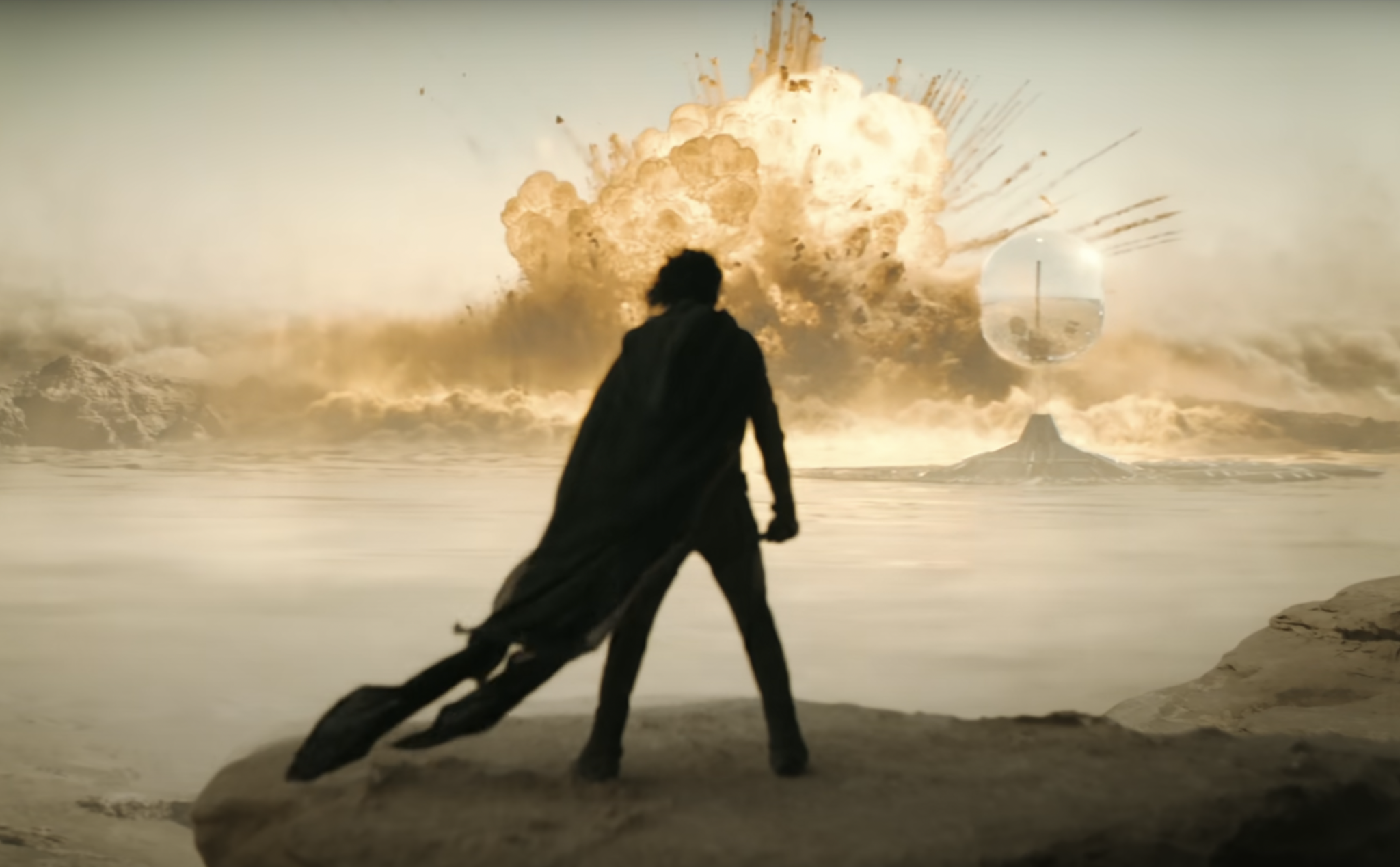Throughout Dune, Rebecca Ferguson’s Lady Jessica repeats to herself, “I must not fear. Fear is the mind-killer.”
Director Denis Villeneuve, who helmed both Dune and its sequel released on Friday, must have had the same mindset when he set out to achieve the impossible — bringing Frank Herbert’s seminal classic to the big screen, a feat once considered impossible.
Dune: Part Two is a direct follow-up to Villeneuve’s last film and adapts the latter half of Herbert’s famed novel. The film continues Paul Atreides’ journey to join the Fremen and exact revenge on those who destroyed his family, all while racing to prevent a holy war only he can foresee.
The magnitude of Villeneuve’s achievement cannot be understated. With Dune: Part Two, he not only weaves together a mythic denouncement of religious fanaticism through a massive cinematic spectacle, but he establishes himself as one of film’s greatest auteurs — living or dead.
This story has been adapted before — first by David Lynch in 1984, and again by John Harrison in his 2000 miniseries. Neither effort led to critical acclaim and Lynch’s venture was an infamous financial failure.
[‘Underdressed at the Symphony’ captures Faye Webster’s whimsical side]
Villeneuve’s two-part approach has paid off, and Dune: Part Two’s payoffs retroactively improve its predecessor, a film some criticized for being nothing but build up. The film succeeds in satisfying those loose threads all while elevating underdeveloped themes from the 2021 film.
Much of this narrative satisfaction is thanks to Villeneuve and Jon Spaihts’ script, which isn’t afraid to diverge significantly from the story beats of Herbert’s decades-old novel.
While these differences may bother Herbert purists, they serve to simplify the book’s complex final pages, allowing the film to better focus on its thematic messaging.
The script also builds on the epic scale of the first, creating a film that is larger in scope and story — aided by Greig Fraser’s masterful cinematography. After winning the Oscar for his work on the saga’s first installment, Fraser upped the ante in the sequel.
A black-and-white Giedi Prime sequence is a particular standout, as is the film’s orange-soaked opening.
Dune: Part Two could have easily sacrificed character for its visual spectacle, but Villeneuve and company evaded that trapping. Without a doubt, this is Timothée Chalamet’s movie. He commands this film as Paul Atreides, embodying the messianic figure with the maturity of a seasoned performer.
Over the course of the Part Two’s nearly three hour runtime, he transforms into a source of genuine fear and intimidation.
Chalamet’s screen presence is enhanced by those around him, namely Ferguson, Zendaya and Javier Bardem. Zendaya’s Chani represents an evolution from the character’s literary roots, becoming a necessary foil to Paul’s evangelical awakening.
Bardem’s character provides a surprising amount of comic relief while still playing an important part in Paul’s rise to power.
[UMD student creates bag business to highlight Cameroonian culture]
However, it is Ferguson that steals the supporting actor show. Lady Jessica becomes an imposing force under her control, a false prophet of biblical proportions powered by Ferguson’s natural intensity and exacting presence. She delivers some of the film’s most unsettling moments, selling Paul’s character arc more than any other.
The rest of the cast is operating on the same level, especially Austin Butler, who seems to have finally escaped the clutches of his Elvis persona.
Once again, he commits entirely to the character, embodying the twisted Feyd-Rautha Harkonnen in a memorably villainous fashion. Two excellent combat scenes certify him as the film’s top scene-stealer.
These performances, combined with astounding production, costume designing and Villeneuve and Spaihts’ top-notch script, produced one of the greatest achievements in not just science-fiction cinema, but film history as a whole.
Villeneuve elevated and improved upon Herbert’s work to create a film both timely and timeless — a damnation of religious fanaticism and a gut-wrenching depiction of how myths and messiahs can drive a society to ruin.
Dune: Part Two is parable about many things — colonialism, fascism and religious doctrine chief among them — but at its core, it is a film making a definitive condemnation of the corrupting nature of power, no matter how noble someone’s aspirations may be. Villeneuve leads the audience to paradise, where spice flows freely from Herbert’s hallowed pages.



